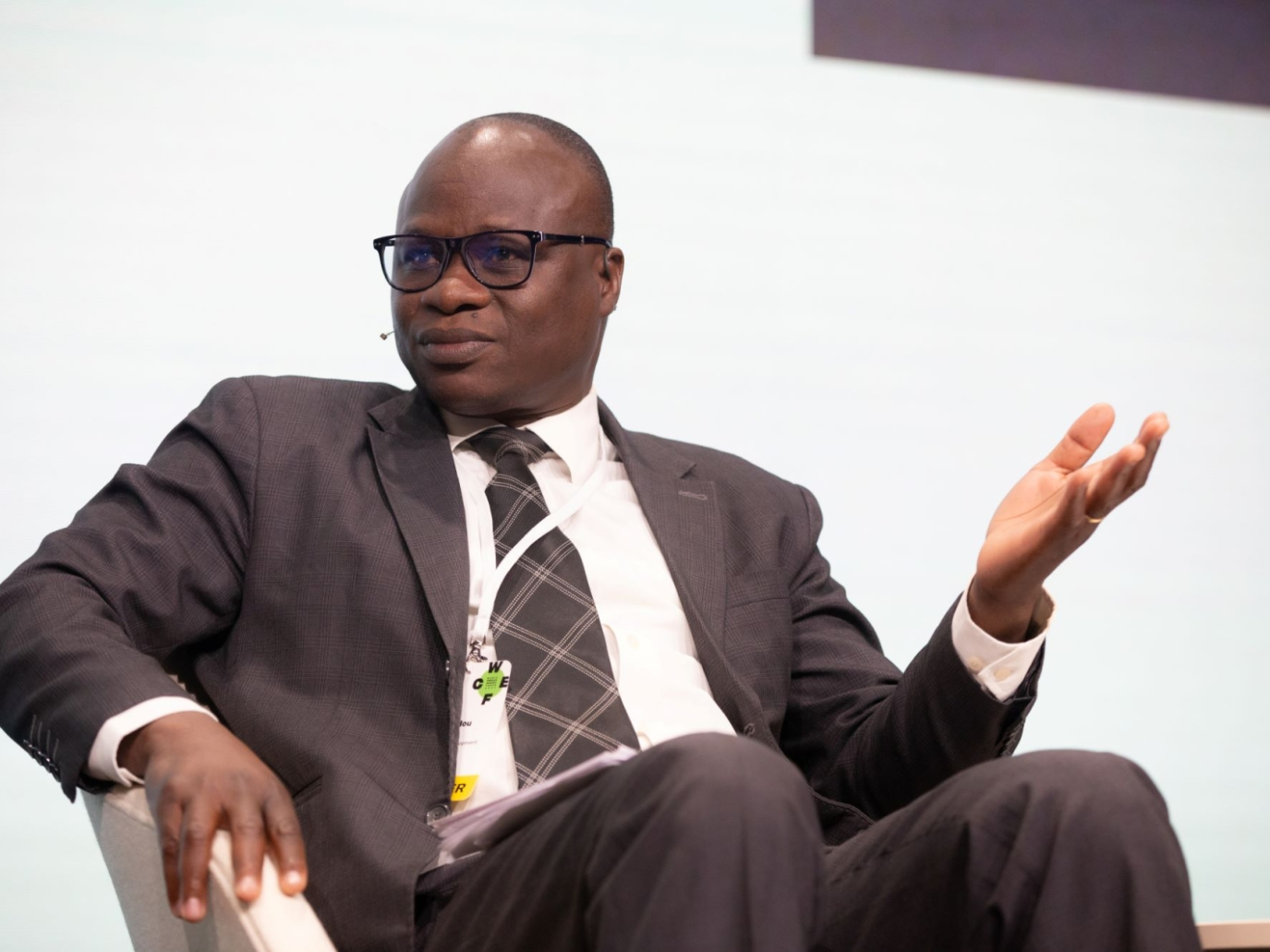Africa has great potential. This is often heard in a variety of contexts, and this is particularly evident when considering the circular economy. A vibrant landscape of small businesses, many of which have emerged within the informal economy, propelling a circular revolution in numerous countries of the continent. However, several challenges lie ahead, including implementing regulations at the national level, adopting uniform standards, securing funds and financing to enable the growth of businesses and startups, and fostering innovation.
These are the issues that the African Development Bank (AfDB) has been working on since launching its circular economy programme in 2019. We discussed this with Al-Hamndou Dorsouma, Head of the AfDB's Climate Change and Green Growth division, whom we met last April at the World Circular Economy Forum in Brussels.
What are the main goals of the circular economy programme launched by AfDB?
The idea for an AfDB circular economy programme emerged four years ago, following our participation in the 2019 edition of the World Circular Economy Forum. We devised it as a framework structured around three components. The first is to support the integration of the circular economy into the national development plans of African countries. For instance, we are currently supporting countries like Benin, Chad, Cameroon, Ethiopia, and Uganda to develop national circular economy roadmaps, attempting to create an ongoing policy environment that fosters the implementation of these pathways. The second component is business development. In Africa, many companies are currently emerging in the circular economy sector, but they often have issues accessing financing and even technical assistance. So, in response to this, we have decided to create the AfriCircular Innovators programme, to provide the appropriate support to small and medium-sized enterprises and startups that are emerging in this field.
The third component is advocacy. The circular economy is, of course, a global agenda, but it must be tailored to different contexts, taking into consideration the peculiarities of different regions, continents, and countries. For this reason, the AfDB is supporting the African Circular Economy Alliance platform. This alliance was created by the African countries to advocate for a circular economy that suits their purposes. A great deal of advocacy work is being done through this platform, sharing knowledge and best practices between countries, and between nations and private entities.
We see these three components as part of an integrated framework, because we don't want to see the circular economy as a separate sector. The circular economy is cross-sectoral, and therefore we need an integrated approach, a “comprehensive package”. The AfDB is a financial institution, but we know that finance alone is not enough. It is essential to establish an enabling environment for funding to flow effectively. Without the right policies, regulations, and incentives, it is not possible to succeed. Thus, we are promoting a comprehensive package that includes technical assistance, financing, technology support, and innovation to address the specific needs of different segments of society, since the needs of governments are different from those of the private sector. This is where our program, established around a year and a half ago, originated.
What are the main challenges and critical issues in developing a circular economy in African countries?
There are several challenges we need to overcome. The first is the perceived investment risk. There is a widespread perception that investing in Africa is risky, but this is not true. We need to change this idea. Number two is the cost of borrowing money. Interest rates for loans are high, and it is not convenient for small businesses to borrow from banks to grow their business. Other challenges are related to the inadequate policy regulatory environment since the policies that are currently in place have been created for a linear economy, not for a circular one. These policies have to be updated to take into consideration the specific requirements for circularity.
And of course, there is the issue of access to finance, including the global one. In response to that, we need to develop tools that are able to leverage both local currency and hard currency from international markets, so that we have a complete framework for financing circularity in Africa. The challenges are many, but the potential is huge, and we need to develop the instruments that are going to help us address them.
What, then, could be the tools to attract private capital from abroad?
Several instruments can be used to attract more private financing. One relates to taxation. Some countries are already working on tax reliefs in order to create incentives for the private sector to come and invest without additional taxation. Another important instrument is using technical assistance grants, to leverage private sector participation. Then there are derisking instruments, which provide private investors with risk-sharing guarantees.
Just like blended finance?
Yes, blended finance is another instrument that is already in use. For instance, the AfDB is using a lot of blended finance mechanisms to combine our financing with resources from private companies, but also with climate funds. However, we need to also work at the country level to create incentives for the diffusion of the circular economy. It is very important because you cannot rely only on international support.
At the African Circular Economy Alliance level, are you working towards alignment with international standards?
Of course! We are supporting some international standards, like the Global Circularity Protocol of the World Business Council on Sustainable Development. As AfDB, we are also part of the joint working group of multilateral development banks, with whom, at WCEF 2024, we published a document entitled A Shared Vision for the Circular Economy. The next steps will include developing common standards, common principles, and a common matrix to measure circularity.
Which African countries are currently the most advanced in their journey towards circularity?
It is challenging to rank them, partly because for an accurate comparison, all countries would need to adopt and adhere to the same standards. However, we see some progress in nations such as Rwanda and Kenya, as well as South Africa and some North African countries like Morocco. I cannot name the best performance or make a ranking, but the fact that there is progress is encouraging.
This article is also available in Italian / Questo articolo è disponibile anche in italiano
Cover image: Al-Hamndou Dorsouma photographed by Marian Stanescu



